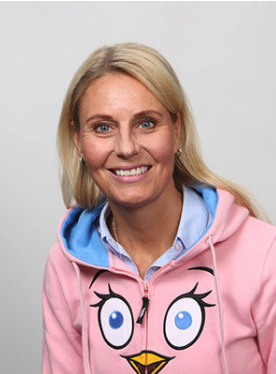Private Equity: Identifying and Cultivating Human Talent In Your Portfolio Companies
Fiona McKay explores the critical markers needed when human capital is under the spotlight and identifies the 4 key areas she uses when applying her own PE™ stress tests for investors.
People make businesses flourish. That mantra is true no matter how technology-driven or scalable your company is. Now, more than ever, human and leadership capital is under keen scrutiny when Private Equity companies are looking to make new acquisitions and deploy funds into investments.
Today’s business leaders are having to face tough challenges in the face of the exponential rise of A.I. and digitalisation. The investment opportunities that arise in new and emerging markets for Private Equity firms require the implementation of both of these. The critical driver is, and will continue to be, the financial modelling of the investment opportunity but just as important is having the right leadership in place for your investment to realise its full potential.
4 Key requirements
When I am conducting my own ™ stress tests for Private Equity clients considering a portfolio company investment, I focus on 4 main areas:
How visionary are the leaders and can they galvanise every employee to deliver on the vision?
Outstanding leaders share their remarkable vision in every interaction and at every connection opportunity with their people. Their job is not necessarily about detail but rather being able to articulate a desired future state and create energy, impetus and extreme purpose to make the vision a reality.
Niklas Zennström, founder of Skype, came up with the idea while having to pay extortionate phone bills to keep in touch with European colleagues. Skype was launched in January 2003 with the help of Private equity firm Mangrove and by August 2005, had 20 million active users and were gaining 5 new users every second. Although ebay acquired the company in September of that same year for $3.5 billion, Zennström remained at the helm and eventually in 2009, he and his co-founder, along with Silverlake instigated an MBO. Skype was eventually sold to Microsoft for $8.5 billion[1]. Zennström went on to form Atomico, his own Technology based investment fund and remained resolute that it should be in Europe despite pressure from investors to relocate to Silicon Valley.
Zennström, is a visionary business leader. Skype transformed the telecommunications industry and he is now investing in companies that have A.I. at their core or are empowering this new revolution in A.I., such as Graphcore who build processors for accelerated machine learning and a variety of A.I. applications.
Are the leaders capable of running a multi-generational workforce?
Most workforces are made up of a broad age profile. Employees can now range from Veterans/Baby Boomers to Generation Y. Yes, this brings a spectrum of experience and talent but with it comes some serious challenges, as the needs and expectations of the workforce must be managed. Are the leaders in your portfolio up to the challenge and able to connect and create relevance, deep work place experiences and career opportunities with meaning that goes beyond traditional compensation, reward & recognition?
Shifts in employee expectations have been widely discussed (particularly in relation to Millennials); with the younger generations of employees preferring flexibility and a greater focus on meaningful workplaces, with career experiences that go beyond traditional trajectory advancement. Even factors such as training methods will throw up divergences; with older employees preferring traditional, classroom-based learning and unsurprisingly the younger generation favouring experiential opportunities to learn whilst doing, along with digital development too.
Problems can arise when stereotyping creeps in. Younger managers and leaders labelling older employees as inflexible and technophobic, whilst more mature leaders see the newer generation of employees as too eager to challenge norms. Great care needs to be taken to ensure that these stereotypes are kept in check and performance is measured in an unbiased fashion (I will talk more about this in the next section on workplace feedback).
Reverse mentoring, first popularised by GE’s former CEO, Jack Welsh is a great way to counteract generational differences and encourage symbiotic learning throughout an organisation. Furthermore, having leaders who are able to segue into ‘career counsellor’ roles (able to take a stake in their staff’s future, help coach and counsel their direct reports to achieve a blend of both performance and developmental goals), has been proven to increase retention, increase engagement and truly allow talent to be a key driver in strategic company success.
You also need leaders that are able to understand and mitigate differences, whilst harnessing diversity for the benefit of the company. They should encourage collaboration, champion difference and move away from ‘group think’ whilst challenging any evidence of unconscious bias.
Are the leaders exponents of world-class feedback in the workplace?
This may seem like a strange requirement but if you want to achieve maximum potential in your investments, it is imperative that your leaders are encouraging the development of in-house talent. The best way you can develop talent in your workforces, is to ensure they are given measurable and performance-related feedback with aligned personal development goals.
My own research unearthed some remarkable insights in to the way feedback is delivered in organisations and I see this as a key way to improve company performance by untapping maximum talent potential. I was so taken aback by my research findings I launched my #FeedbackFirst campaign earlier this year. You can find out more about #FeedbackFirst by downloading the e-book on this link.
My research has shown there is a deep-seated stereotypical bias around workplace feedback for women. Women, for example, receive feedback which focuses far more on their personal traits than business outcomes. My findings showed that whilst 60% of performance analysis contained criticism for men that figure increased to a staggering 91 % for women. Furthermore, 76% of women are marked as ‘too aggressive' in performance reviews compared to only 24% of men.
Understanding the importance of gender neutral and performance driven feedback is critical when dealing with the leaders of your portfolio companies. If executed properly, feedback can be a significant driver for company performance and the CEOs we surveyed for this research, confirmed this.
The ability to receive feedback, at every level of leadership, should be evident too with supporting structures to enable a culture where feedback is embraced and difficult conversations are executed within a structure of psychological safety.
Are your leaders force multipliers?
If you want to do something better, more efficiently, with amplified results, then you are talking about a ‘force multiplier’. Private Equity firms need leaders in their portfolio companies, who are able to recognise and create environments that enable greater efficiencies and amplified results.
Force multipliers often need to be brave as well as visionary, by reimagining existing business models or embracing new technologies. This also includes new human capital models and advanced ways of working to create both attractive and efficient performance and productivity cultures.
Meet Kati Levoranta, CEO of Rovio the Finnish gaming company that spawned the phenomenon that is Angry Birds. Kati joined the company in June 2012 as Chief Legal Officer (not long after PE firms had invested in Rovio), moving to Head of Sales, EMEA Region in March 2015. In January 2016, she was asked to take up the position of CEO by the Board of Directors.
Under Levoranta, the Games Licensing division has done very well but the brand licensing model has been adapted to focus on location-based entertainment and allowing the brand to be used on clothing and toys and even a 3D movie. Rovio has been a success story, particularly in China (becoming one of the most recognisable brands). The Angry Birds movie performed exceptionally well, achieving the 3rdbiggest opening ever for an animated film in China.
Rovio are keeping one eye very closely on Blockchain technology which is getting everyone very excited in the Technology markets. Blockchain technology was originally devised for the Bitcoin, allowing digital data to be distributed but not copied. Already being used in some industries, such as Banking and Insurance, Levoranta thinks that blockchain has:
“potential to fundamentally change how industries operate tangible benefits in mobile games…As a part of our strategy, we are actively following the developments and also gaining experiences through participating into EU project SOFIE, where we study how IoT (Internet of things) and blockchain can be utilized in mobile games.”[2]
Levoranti’s vision and proven aptitude as a force multiplier, is the reason she was elevated to the position of CEO and it is an investment that has paid big dividends. The IPO for Rovio was in September 2017, with a company valuation of $1 bn.
Today’s technological environment, so fraught with challenges, also offers as many opportunities and you need leaders who are prepared to identify and grasp those opportunities to make your portfolio companies create significant investment returns. Those leaders need to possess the skills outlined above and have a vision that matches your own. Niklas Zennström, remained in Europe, despite the pressure to go to Silicon Valley and trusted his instinct that the gaming ecosystem evident in the Nordic countries would reap benefits, which it did. This year PE firms are seeking public-to-private deals on the European stock market at the fastest pace since before the financial crisis, with PE firms already agreeing transactions worth more than $27bn[3] ($7bn more than the high set last year). Atomico has so far yielded several unicorn investment stories and produced its first decacorn – the mobile game developer Supercell!
About the Author
Fiona McKay understands leaders and the forces that drive, disrupt and deny greatness. Technological transformation, fast growth and chaotic markets and economies are a few of the environmental influences that derail both professional and personal trajectories of CEOs, leaders and entrepreneurs. Fiona works in partnership with Private Equity firms and their portfolio companies to mitigate those forces; to design leadership solutions to support investment aspirations that deliver significant returns and results.
In a results-driven world, she has won international recognition as an executive business mentor, exclusive motivational speaker and growth partner.
An expert in leadership and influencing how decision-makers think to achieve measurable outcomes, either through personal development or tangible market growth, Fiona brings a realism and dynamism to consultancy which few can match.
Contact
Tel: +44 (0)203 813 1749
[1] https://www.forbes.com/sites/miguelforbes/2017/11/08/skype-founder-crushes-it-again/#161b85c764c5
[2] http://sea.imgawards.com/news/interview-kati-levoranta/
[3] https://www.penews.com/articles/buyout-firms-flock-to-europes-public-markets-20180917?mod=topStories




